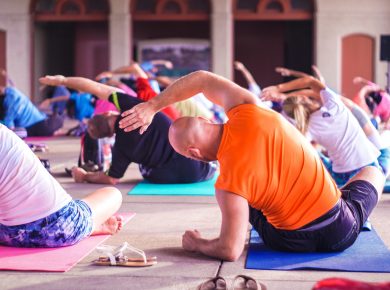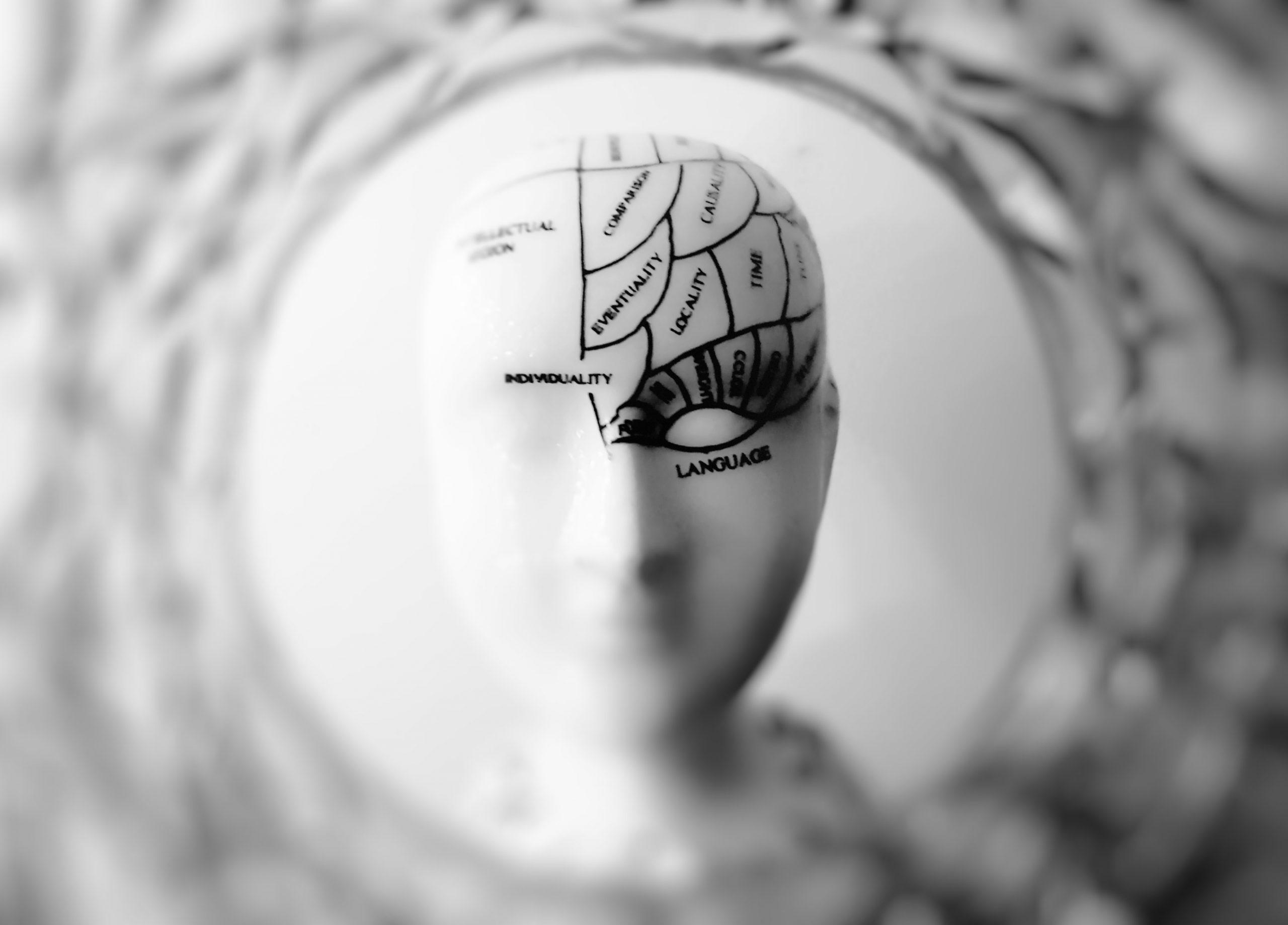Stress and anxiety are the individual’s abilities to cope with pressure as well as anxiety since both are viewed as regular occurrences in contemporary society. Whether it is the pressure at the workplace, family obligations, or even children’s school and extracurricular activities, life has turned out to be so demanding.
Nevertheless, being enlightened on the ways of handling anxiety in the right manner is essential for psychological and emotional health. Let us consider ten efficient solutions to overcome these problems and read practical recommendations that are more than common tips.

1. Understanding Stress and Anxiety
What is Stress? Stress is a normal experience that can be evoked when one is in a stressful situation. It elicits the “fight or flight” reaction in the body and induces hormones such as adrenaline and cortisol. Academic stress, being a part of the daily life stressor, is not always healthy and can cause severe health complications such as heart disease, diabetes, and mental health disorders.
What is Anxiety? While in anxiety, there is free-floating or morbid fear or intense worry about a future event. It is of several types, namely, generalised anxiety disorder, panic disorder and social anxiety disorder. Normal anxiety is usual, but when it is constant, then it becomes chronic and is detrimental to one’s existence.
The Connection between Stress and Anxiety: Stress and anxiety are interwoven, with one aspect leading to the other; stress causes anxiety, and at the same time, anxiety causes more stress. It is crucial to comprehend this association to be capable of managing both efficiently.
2. Practice Mindfulness and Meditation
What is Mindfulness? Psychotherapeutic mindfulness can be defined as a set of activities that enable the patient to stay focused on the physical and emotional experience at presen,t with the exclusion of any judgments. It involves paying attention to your thoughts, emotions, and physical experienc,es which aids in enhancing the understanding of one’s psychological state.
Strategy Concerning stress and anxiety: Stress and anxiety are considered to be two antecedents that can be greatly reduced through the implementation of mindfulness among the working population. Through the approach the to accomplishment of such of mentality, the person can watch over their minds without being drowned in them.
3. How to Practice Mindfulness
to be free from anxiety, let us consider the following:
Start Small: Start with 5-10 minutes a day. However, it is recommended that the duration be increased gradually depending on the level of comfort that is being developed.
Focus on Your Breath: Take a look at how you breathe. Cultivate an awareness of air going in and out of the lungs, the entire torso, and the rest of the body.
Body Scan: Sit quietly and become aware of your physical sensations, starting from your head down to your toes.
Guided Meditations: Recommend the use of applications or other Internet resources to complete the guided mindfulness practices.
4. Incorporate Physical Activity
The Science behind Exercise and Stress Relief: Movement is one of the most effective stress busters. During exercises, you secrete endorphins- chemicals in the brain that are responsible for bringing about feelings of joy and even pleasure. It is also effective in enhancing the quality of sleep, enhancing feelings of self-worth, and decreasing the level of anxiety.
5. Types of Exercise to Consider
Aerobic Exercise: Some of the best exercises you should engage in include jogging, cycling, or swimming, as they are normally very helpful in the reduction of stress.
Yoga: Incorporating the motion of one’s limbs with the power of positive thinking, yoga may aid in stilling the brain.
Strength Training: Weight training or any kind of resistance exercise is also effective in decreasing the levels of anxiety.
6. Creating an Exercise Routine
Anxiety will disappear if we practise the following:
Set Realistic Goals: Among the features of goal setting, one should begin with realistic goals to avoid overwhelming oneself.
Find Activities You Enjoy: This perspective can extend to the venue where one selects around preferred activities in an attempt to enhance compliance.
Schedule Regular Workouts: Make exercising as serious as you would hitting the gym, a business appointment.
7. Develop Healthy Eating Habits
The Link Between Nutrition and Mental Health: Food choices play a very important role in determining the status of mental health. The consumption of junk foods and those containing high amounts of sugar can create feelings of anxiety and depression, while the consumption of whole foods can boost one’s mental health.
8. Foods to Include for Stress Relief
Fruits and Vegetables: Packed with vitamins and antioxidant properties, they can be of help in fighting off oxidative stress.
Whole Grains: Grains such as oats and brown rice help in stabilising the blood sugar levels, hence eliminating anxiety.
Omega-3 Fatty Acids: Consumed in foods such as fish, especially salmon and nuts, particularly walnuts, omega-3 fatty acids have been known to lower anxiety.
Fermented Foods: Yoghurt and kimchi are good for the stomach, which, more recently, has been connected to the general well-being of the mind.
9. Tips for Healthy Eating
Plan Your Meals: Pre-cooking is useful when you want to avoid non-health-beneficial foods such as fast foods.
Stay Hydrated: Lack of water hampers mood and cognition; hence, ensure that one takes enough water during the day.
Limit Caffeine and Alcohol: Both are known to worsen the situation concerning anxiety and can contribute to disturbances in this factor, as with sleep.
10. Establish a Support Network
The Importance of Social Connections: They come in handy when providing social support to a stressed or anxious patient. Making friends, having a family, or having colleagues at work can help in gettsomeone’seone emotional support, someone who can lend you a hand, and someone who can welcome you.
11. Ways to Build Your Support Network
Reach Out to Friends and Family: It is okay to talk to anyone close to you regarding the emotions that you are feeling.
Join Support Groups: There are anxiety stress-related groups in the local communities or online forums.
Engage in Community Activities: Social functions include volunteering or participating in communal activities that assist one in attaining a connection.
12. Prioritise Sleep Hygiene
The Impact of Sleep on Mental Health: It is a well-established fact that sleep is a critical component in proper cognitive and emotional health. Stress and anxiety are conditions that are likely to be worsened by poor sleeping habits, hence leading to a cycle.
13. The Advice on How to Get a Better Sleep
Create a Sleep Schedule: Thus, one needs to regulate the biological clock by going to bed and waking at the same time each day.
Limit Screen Time Before Bed: The light of the screens before going to bed can disturb the body, thereby delaying sleep since the body will not be able to produce melatonin.
Create a Relaxing Bedtime Routine: Boffin electronic devices or other brain-stimulating activities before going to bed, take a warm bath or read before you sleep.
14. Practice Deep Breathing Techniques
The Benefits of Deep Breathing: Preliminary breathing exercises can also stimulate relaxation of the body’s muscles and decrease stress and anxiety. Depending on it, by mentally fixating on your breath, you will be able to avoid concentrating on the anxious thoughts.
15. Simple Deep Breathing Exercises
- 4-7-8 Breathing: This method of breathing is 4 7, where one will inhale for four counts and then exhale for eight counts. Repeat several times.
- Diaphragmatic Breathing: Stand as if you’re about to exercise; put your right hand on your chest and the left on your belly. Take a slow breath through your nose, the way you are told, and your abdomen should expand more than your chest.
16. Limit Exposure to Stressors
Identifying Stress Triggers: The main goal of stress and anxiety management is to acknowledge the cause or origin of such stress and anxiety. This can be done by recording one’s emotions in a diary to discover some regularities.
17. Strategies for Reducing Stress Exposure
Set Boundaries: Develop the extent of not accepting calls that overburden and cause stress.
Limit News Consumption: This is because exposure to negative news regularly can increase the level of anxiety. It may be wise to schedule certain hours in the day when one can just surf the news.
Create a Calm Environment: Tidy your home so no unnecessary items are around for a cclutter-freeroom room that is no longer clean and quiet.
18. Engage in Creative Outlets
The Therapeutic Benefits of Creativity: The following are some of the findings that were obtained from the present study. In the study, it was apparent that creative work could be a good stress buster. Self-narration or artwork can help an individual relax about something that they were stressing about or gain a certain feeling of achievement.
Creative Activities to Consider: 1. Art. Art is a convenient way to express emotions; one can paint, draw, or create works of art such as crafts. 2. Writing: If you have something to express, perhaps journaling or creative writing will assist you in this matter. 3. **Music**: Listening to music or playing an instrument can cheer you up and help get rid of stress.
19. Seek Professional Help
When to Consider Therapy: When stress and anxiety reach an unmanageable state, one would need to consult a professional. Counsellors themselves can give you techniques and ways that will suit you best.
Types of Therapy to Explore: 1. Cognitive Behavioural Therapy (CBT): Is centred on behaviour modification of cognitive processes and responses that present manifestations of anxiety. 2. Mindfulness-Based Stress Reduction (MBSR):
A form of mindfulness-based stress reduction that incorporates meditation and yoga. 3. **Supportive Therapy**: Can involve a healing process based on sharing emotions with someone ready to listen and comfort.
20. Embrace Self-Compassion
The Importance of Self-Compassion: Self-esteem can be understood as the way you talk to yourself or the way you handle yourself during the worst of times. As the current strategy acknowledges realistic negative things about the individual, it may help to balance negative self-statements and build coping.
How to Cultivate Self-Compassion
- Acknowledge Your Feelings: Emphasise the point that it is normal to get stressed, worried, or anxious.
- Practice Positive Self-Talk: Use positive self-talk and substitute negative thinking with positive words and supporting statements.
- Engage in Self-Care: Engage in satisfactory self-care activities that support your physical and psychological well-being, like bathing, reading, or being in nature.
Coping with stress and anxiety is a process that one must work through and is not a one-time process. Thus, practising these ten effective strategies can enhance the level of resilience and, hence, contribute to the better functioning of a person.
To control anxiety, you should consider the following. Understanding and safeguarding your needs is imperativ,e and do not be afraid to ask for help where and when help is needed. Start the process of reaching foahe better, less-stressed life and take the first steps on this path right now. You can read further similar posts on our medicine and health page of the site.










